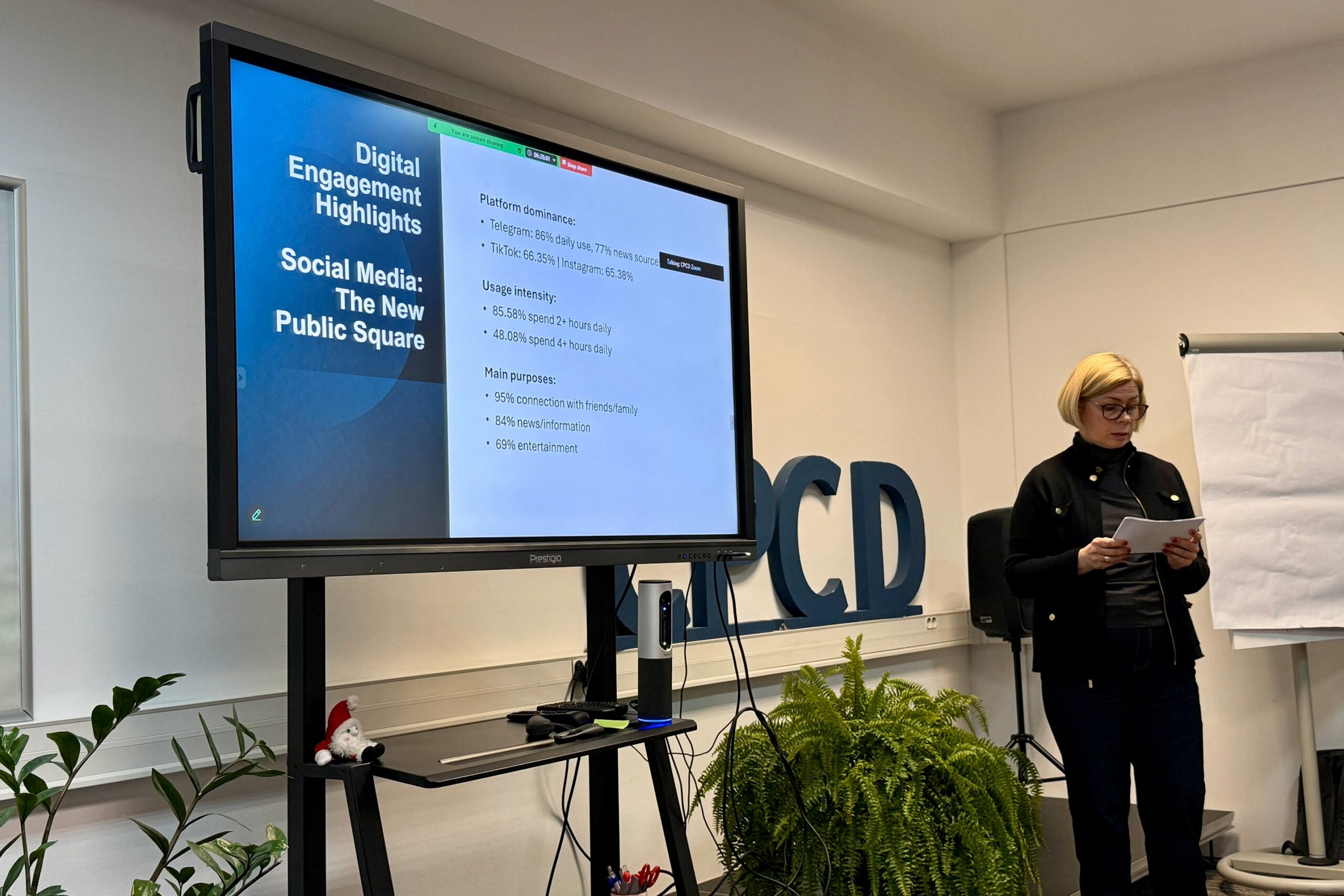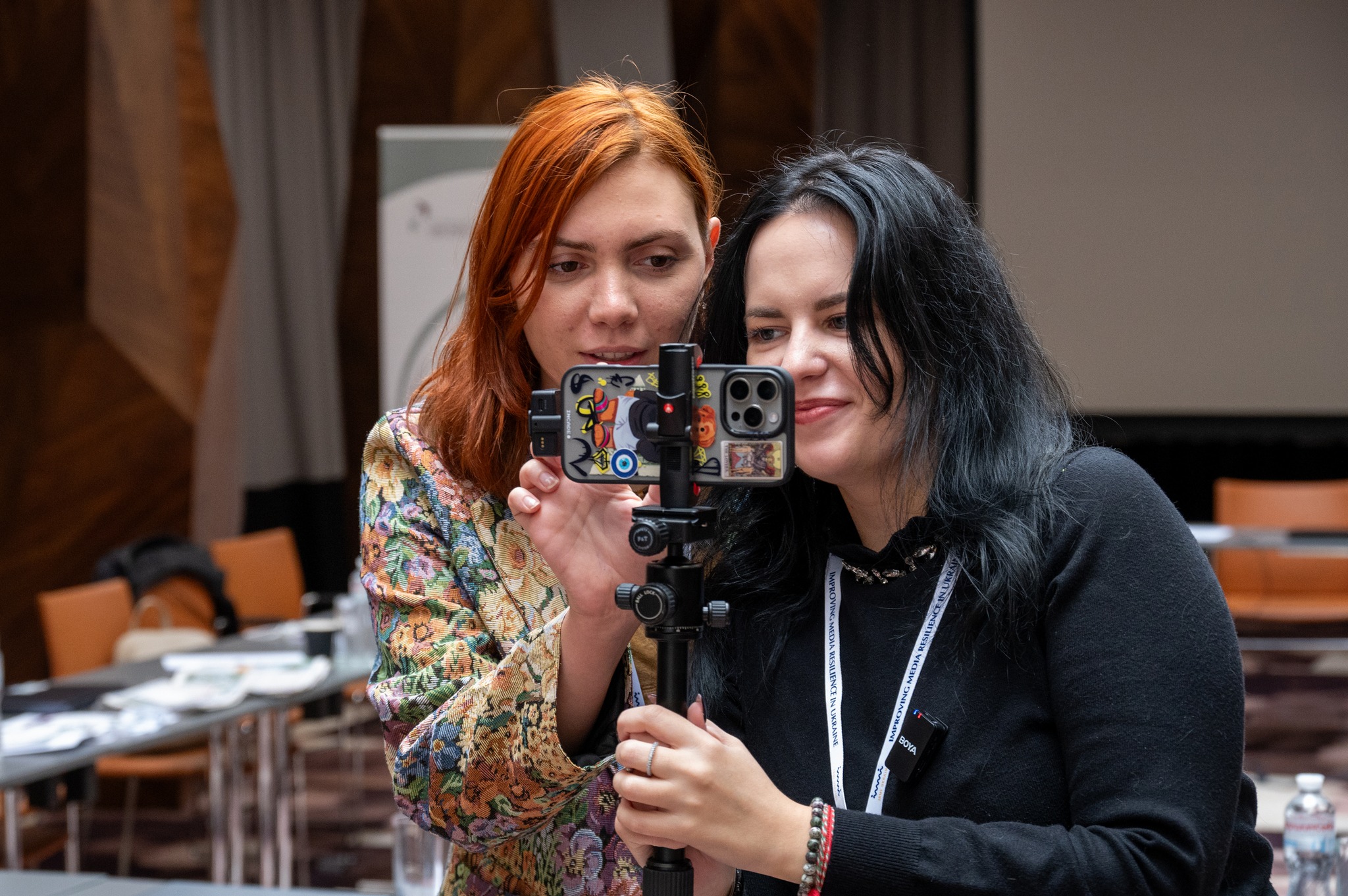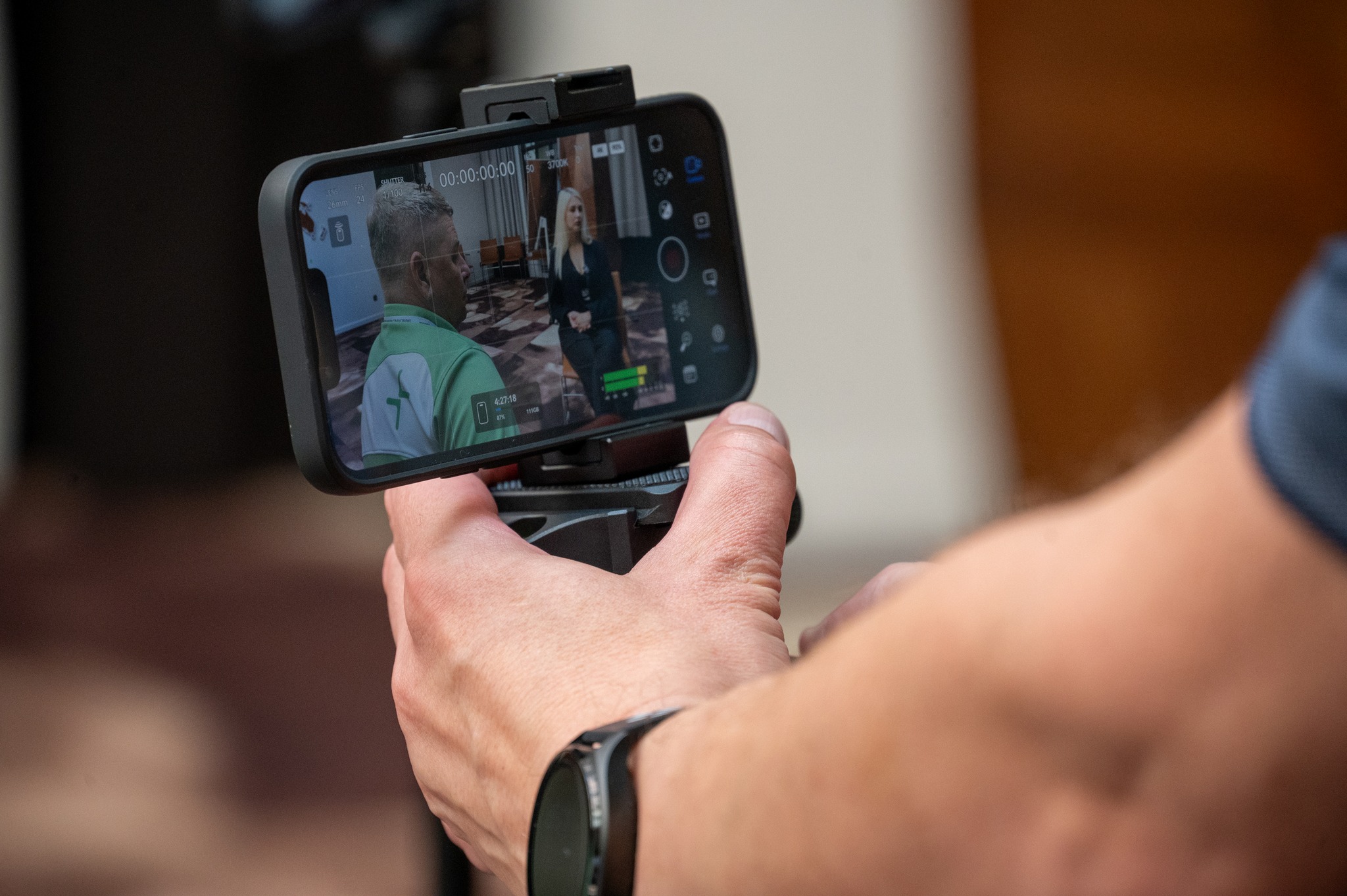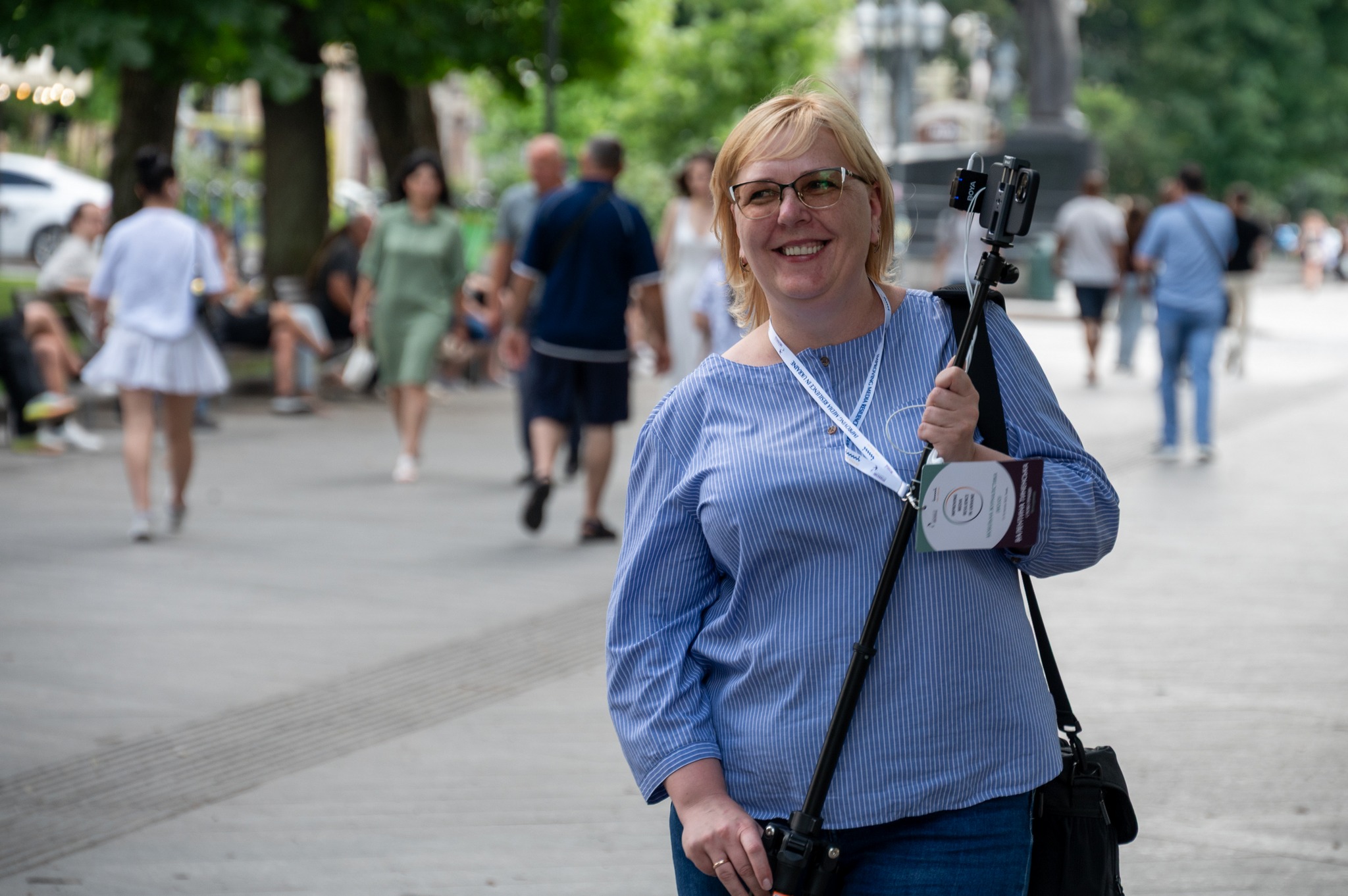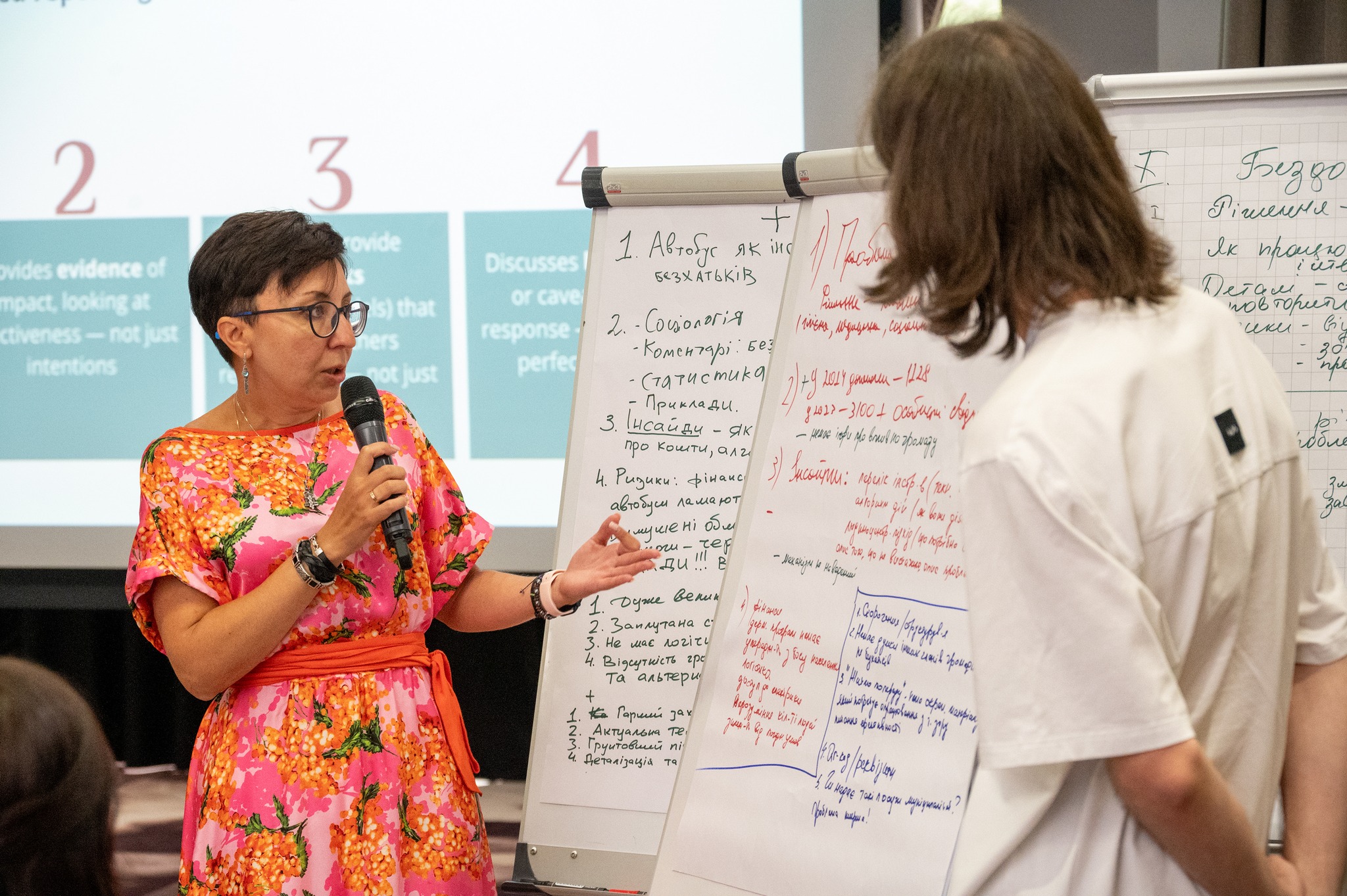



The first training of the new cycle in the “Improving Ukrainian Media Resilience” project was held in Lviv, bringing together 19 media organizations from various regions of Ukraine, including frontline areas.
The event featured constructive discussions about challenges journalists face in communities and sharing experiences of covering social cohesion issues during wartime. Participants forecast how professional media might develop, particularly regarding community interaction and people’s information needs. The key session focused on journalism oriented toward public interest. How can media better meet local information needs while maintaining high editorial standards? Trainers Angelina Soldatenko and Olesia Hudzenko emphasized the importance of covering topics related to reconstruction, security, and community resilience. During a brainstorming session, journalists proposed specific topics, angles, and formats for developing stories, identifying issues of greatest concern to their communities. These included distribution of reconstruction funds, humanitarian aid, and local success stories.
According to sociologist Olesia Hudzenko, the training’s goal was to teach journalists to recognize and cover manifestations of community cohesion in their publications: “The ability to distinguish between cohesion and activism allows journalists to better understand social processes in a community. Social cohesion is trust, a sense of belonging to the community, mutual assistance, and readiness to participate in community social life.” Cohesion forms the foundation for creating stable community relationships and solidarity, while activism promotes social change. Ms. Hudzenko believes that by understanding these differences, journalists can more effectively contribute to strengthening their communities through their publications.
The first day concluded with a practical assignment for participants—finding potential stories in Lviv that illustrate social cohesion principles. The final two days covered disinformation, SEO, tools usage, and AI ethics. According to feedback, each participant identified what was most valuable for them: some appreciated working with platforms, others enthusiastically engaged in discussions about relevant community topics, while others reflected on what sociologists shared.
Tetiana Luchynska from “Mayak” (Bohodukhiv) says: “Personally, it’s not easy for me to understand terms, for example, regarding SEO. But compared to the beginning of the training, my ratings improved by one or two points. I’ve been working intuitively on the platforms we discussed, so participating in this project is truly a gift of fate. Over the past three years, we’ve grown significantly, with a YouTube channel that’s developing, albeit slowly, along with Telegram, Facebook, and TikTok. These trainings allow us to move forward. We developed many topics with colleagues and gained inspiration. I wish everyone success!”
“Social cohesion, security, and reconstruction—I can already envision topics I could propose in my communities. This was the most useful part during these days,” believes colleague Svitlana Karpenko from “Trudova Slava” (Orikhiv). “The sociology was also interesting; we need to conduct surveys in communities and see what the results will be. As for YouTube and SEO, we’re still at the beginning.”
In training journalists, IRMI also aims to help develop trainers and mentors from among the most active participants in our programs. Last year, journalists from several hyperlocal media outlets in Dnipropetrovsk region worked in a hub based at the “Visti Prydniprovya” editorial office (Dnipro, editor Oleksii Kovalchuk). This time, the project marked the mentoring debut of Olena Astrakhovych, a TV journalist from Odesa.
“Social cohesion is the most important topic in Ukraine today, from families to cities, the entire society,” comments Ms. Olena. “We really need to support each other, to feel that someone is nearby. We are journalists, and at the same time, part of this same society, perhaps the most conscious part. So we need to be at the forefront, looking for topics and ideas that will unite people, help them overcome problems during the war and in the future during reconstruction.”
The training was held as part of the “Improving Ukrainian Media Resilience” project that IRMI is implementing in partnership with Fondation Hirondelle with financial support from Swiss Solidarity. The project aims to preserve access to reliable information for the Ukrainian population, including those in conflict zones and displaced communities.



